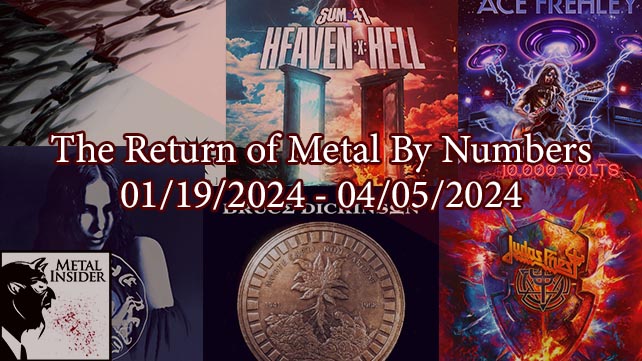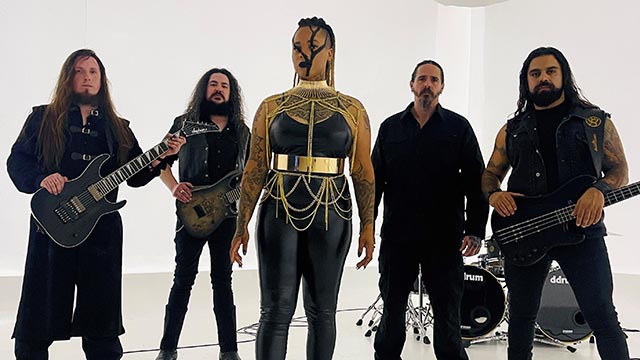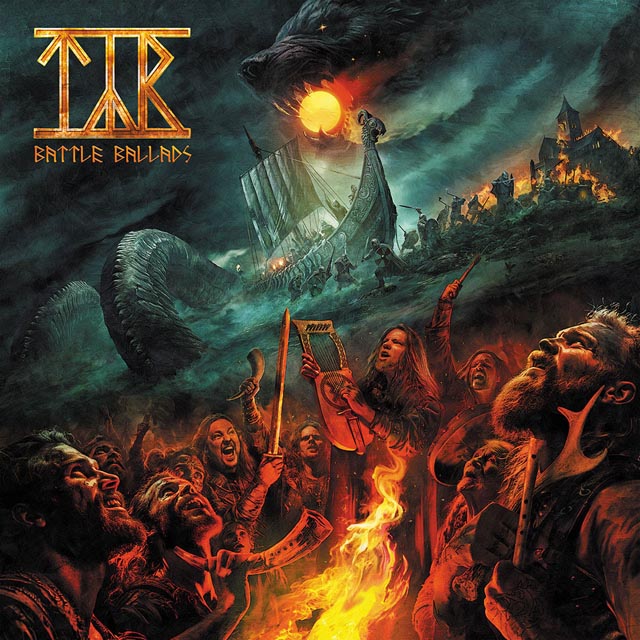 A business student in Belfast recently posed a question towards The Dillinger Escape Plan frontman Greg Puciato asking him to share his feelings on file-sharing. His response came in the form of a lengthy but informative posting on his blog site. In his piece, Puciato discussed a variety of points, including his belief that CDs are no longer “products” but instead collectors’ items, that action needs to be taken against torrent sites, and how it’s the bands/artists right to give music away for free and not the fans right to choose.
A business student in Belfast recently posed a question towards The Dillinger Escape Plan frontman Greg Puciato asking him to share his feelings on file-sharing. His response came in the form of a lengthy but informative posting on his blog site. In his piece, Puciato discussed a variety of points, including his belief that CDs are no longer “products” but instead collectors’ items, that action needs to be taken against torrent sites, and how it’s the bands/artists right to give music away for free and not the fans right to choose.
While you can read his entire statement over at his blog, here is a piece of Puciato’s statement regarding the issue that stood out to us:
“The issue obviously isn’t the technology but the way in which it’s completely blindsided the world of intellectual property and the commerce/profit/royalty structure that the industry previously had in place, which, while usually grossly unfair to the artist and needing to change anyway, at least still upheld the concept that songs possessed a monetary value.
It’s tricky to get into trying to ‘police’ the internet because the glory of the internet is that it really isn’t policed at all. The torrent sites and things like that can claim that they really have no legal responsibility for the things that are being torrented on them, in the way that Yahoo or Google can say that they aren’t responsible for what is being emailed back and forth from people with Yahoo or Google email accounts, or if I can read the recipe for meth by using one of their search engines.
All of that being said, the choice of whether to release music for free, should be the artist’s, just as if I ran a coffee shop and wanted to give away free coffee samples or have a free coffee day that should be my choice, not the choice of the consumer. At no point would it be acceptable for the consumer to just come in and take the coffee…but that is exactly what would happen to the seller of any good if there were no laws or means of or threat of enforcement of those laws.
I think that a lot of people would have a natural conscience enough to just feel bad about stealing the coffee/groceries/auto parts/whatever is being sold…and would pay anyway. However, like anything, once you do something once with no consequence, you do it again, and then again, and then eventually feel nothing. Even harder is trying to get people to pay who have grown up NEVER paying (many kids now). As ‘uncool’ as it sounds though…something needs to happen.
Artists would not be able to survive, and the whole argument of ‘well they can still tour and sell merch’ ONLY holds up at all because people have to BUY tickets and merch! If you could just walk into our show for free and then also just walk away from our merch table and grab a shirt for free….we would just be done. People only spend around twenty percent of what they spent ten years ago on music…so I’m sure you can imagine that it has cut into our financial means more than substantially, as well as music stores, companies, producers, etc.
I’ve watched someone like Steve Evetts (DEP producer…among many other bands) for example…absolutely one of the best at his craft…and I’ve seen how he has had to accept less and less pay for doing the same amount of work. This is someone who doesn’t have the ability to go on tour and sell merch. The amount of revenue a record company/band expects to generate or does generate is the only indicator of how much he receives. People don’t think of that when they use the whole ‘well a band can still tour’ argument. Any argument is just an argument to appease a guilty conscience and try to pretend that it isn’t wrong…because we all still just wanna be able to get things for free.”
Puciato hits on some very true points. It’s no secret that the touring industry has been struggling in the past year, while many metal bands (especially newer acts) barely make enough from the road as it is. And Puciato highlights how illegal file sharing doesn’t just hurt the band, or labels for that matter, but anyone involved with the making of said album as well.
It’s tough, because we mainly agree on a lot of Puciato’s points and arguments, but as we speak people are still file sharing and album sales are still decreasing heavily. The goal is to reinstate the “value” of music that file sharing has helped weakened. Whether we follow Puciato’s suggestions or not, let’s hope that such a goal can be met soon.
Take a look at the rest of Puciato’s response to file sharing over at his blog site.
[picture via]






